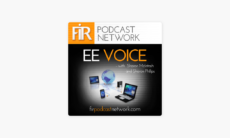As the nature and pace of work continues to evolve (devolve?) at breakneck speed, leaders have an opportunity to recast career growth, knowledge acquisition and skill development in support of our desired current and future state. Non-linear, or “squiggly” paths, allow us to widen our career aperture and explore diverse professional experiences best aligned with our values, purpose and strengths. Curating our own career portfolio, rather than attempting to ascend a pre-defined ladder, can widen the breadth and depth of our experiential mosaic. Ultimately, we can facilitate a greater sense of meaning and consonance in our work and the goals we want to accomplish.
“Employees want to be seen, valued, and listened to. They want equity, dignity, security, balance, flexibility, and autonomy. They expect opportunities for growth, learning, meaningful contribution, and fulfillment…The question is no longer ‘What do you do?’ but rather ‘Who do you wish to be and become?’ Talent attraction, career development, and professional identity are all in flux.” Read more in this edition’s featured article from Harvard Business Review: Stop Offering Career Ladders. Start Offering Career Portfolios. And for more context and thoughts on “squiggly” career paths, you can revisit this TEDxLondonWomen talk I included in a newsletter last year.
In addition, there is an eclectic range of reading and listening that I have curated. Diverse in content and sourcing, these pieces all resonated with me and the work I am doing with clients and colleagues. Of particular note, and as a coda to my last newsletter edition re: the need for and importance of valuing exceptional women, I am including the following two pieces that dropped this week: Women in the Workplace: 2022 and How Confidence Is Weaponized Against Women.
The former is a joint study conducted by LeanIn.org and McKinsey & Company that does nothing to assuage concerns about the abysmal state of affairs for women leaders in corporate America. Of particular note are 1) the “broken rung” phenomenon: “for every 100 men who are promoted from entry level to manager, only 87 women are promoted, and only 82 women of color are promoted;” and 2) “women leaders are leaving their companies at the highest rate in years, and the gap between women and men leaders leaving is the largest we’ve ever seen. To put the scale of the problem in perspective: for every woman at the director level who gets promoted to the next level, two women directors are choosing to leave their company.”
The latter summarizes a series of interviews with women and men on their attitudes about confidence, what it means in the context of their gender and how confidence plays out with respect to their career prospects and trajectories. Not surprisingly, “women are frequently proffered admonitions about confidence, intended as ‘well-meaning’ career advice, only to find themselves walking an enervating tightrope of exuding just the ‘perfect’ amount of self-confidence: a psychological challenge men rarely face. Not only is this damaging to women’s mental well-being but the focus on self-confidence also deftly distracts leaders from addressing structural barriers to gender equity. We suggest that this risk/reward profile means it is now time to declare a moratorium on the confidence narrative.”
As always, happy reading and listening!
Articles
Harvard Business Review: How to Help an Employee Figure Out Their Career Goals. “It’s not always possible to help the people we supervise identify and work toward their career goals. But having a sense of purpose and a feeling of momentum in achieving our career goals is powerful — so when we can assist our employees in getting there, it’s a meaningful way we can make a difference in their lives and their professional success.”
Harvard Business Review: How to Build Your Personal Brand at Work. “Building a personal brand is a real investment and can be tricky when you’re giving yourself fully to your job. It’s even more difficult for young professionals, who may have less experience to build from. So, how do you get started? The trick is to make your personal brand a fulfilling part of your day-to-day job. Here’s how.”
The New York Times: The Office’s Last Stand. “It’s either the end of the era of flexibility around where work takes place — or the beginning of outright rebellion.”
BBC WorkLife: The Non-Linear Workdays Changing the Shape of Productivity. “Some employees are breaking up their working days into a few hours at a time, doing tasks flexibly and asynchronously in the new world of work.” [For additional excellent reading on the difference between “integrators” vs “segmentors” and why it is important to understand their respective needs, check out Building Work-Life Boundaries in the WFH Era.]
The Wall Street Journal: What the #@$%! Happened to Our Manners at Work? “Because of pandemic rust, a generational shift or something else, the working world is getting ruder, many say.”
Big Think: The Brain Undergoes a Great “Rewiring” After Age 40. “In the fifth decade of life, our brains start to undergo a radical ‘rewiring’ that results in diverse networks becoming more integrated and connected over the ensuing decades, with accompanying effects on cognition. The networking changes likely result from the brain reorganizing itself to function as well as it can with dwindling resources and aging ‘hardware.’ Proper diet, regular exercise, and a healthy lifestyle can keep the mind in good working order and put networking changes on hold, sometimes well into old age.”
Blog Posts & Opinions
Fast Company: The Key To Planning In an Uncertain Economy? Ruthless prioritization. “Leaders should be scaling back on their 2023 goals—and focusing on what’s most important.”
The New York Times: The Immortal Awfulness of Open Plan Workplaces. “To do creative work, most people need periods of solitude when they are gestating their ideas, then they need periods of sociability when they are testing their ideas and then they need more periods of solitude when they are refining their ideas.”
Podcasts
TEDxUTAustin: Work Is Not Your Family. “You may need to hear this (if you haven’t already): your job is not your family. While you can develop meaningful relationships with your colleagues, calling work your family can actually breed burnout and be detrimental to your mental and emotional health.”
The Ezra Klein Show: The Office is Dying. It’s Time to Rethink How We Work. “That leaves office workers in what feels like a work purgatory: The office is dying, but a new, viable model of work has yet to be born. And that liminal space raises all sorts of new questions: What is the office actually for? What will the post-office future of work look like? And if the future of work means working from home in some capacity, how do we make that future better for everyone involved?”
Arts, Music, Culture, Literature & Humor Corner
The New York Times: Directing the Beatles Was Just One Part of His Long and Winding Career. “The filmmaker Michael Lindsay-Hogg, who attracted some social media scrutiny after his appearance in Peter Jackson’s “Get Back,” finds peace in New York’s Hudson Valley.”
The Guardian: Bono On the Birth of U2, That iTunes Album and Live Aid: ‘There’s only one thing I can see when I watch it: the mullet.’ “In an exclusive extract from his memoir, the singer looks back.”
Noema: The Disappearing Art Of Maintenance. “The noble but undervalued craft of maintenance could help preserve modernity’s finest achievements, from public transit systems to power grids, and serve as a useful framework for addressing climate change and other pressing planetary constraints.”
New York Times: The Enduring Wisdom of ‘Goodnight Moon.’ “It’s the first book many babies receive as a gift, and one of the few that parents will keep when their child is grown. Why does this 75-year-old story have such staying power?”
The New Yorker: Shouts and Murmurs. “History Report: Great-Grandfather Simon reminisces about the olden days, when boys and girls fell in love without even knowing what each other looked like naked. (“Arrested Development” helped.)”
Reflections
“I didn’t sing anything that was wrong. I just told the truth.” – Loretta Lynn
Autumn
by Jane Hirshfield
Again the wind
flakes gold-leaf from the trees
and the painting darkens—
as if a thousand penitents
kissed an icon
till it thinned
back to bare wood,
without diminishment
This article was originally published here.








